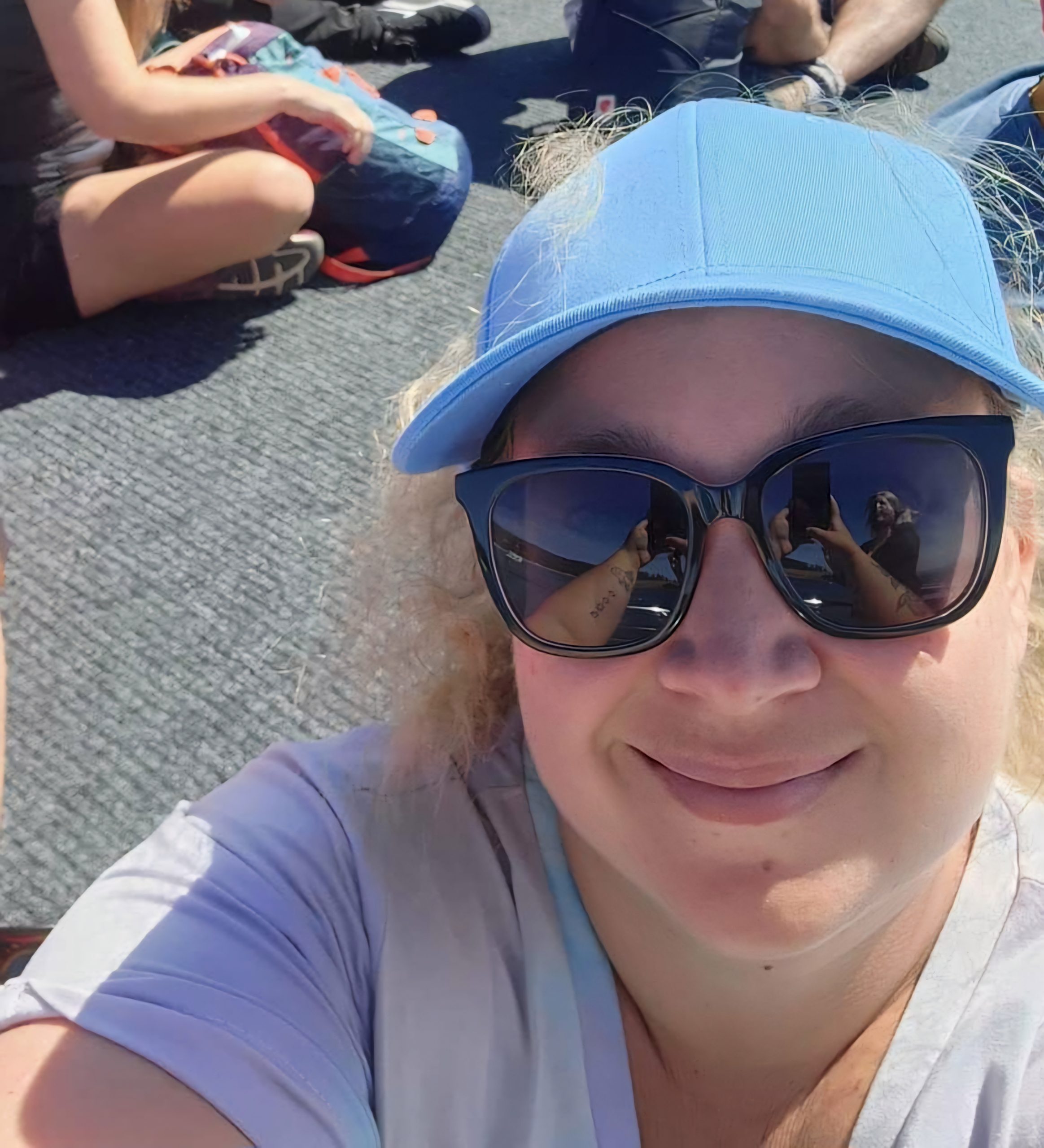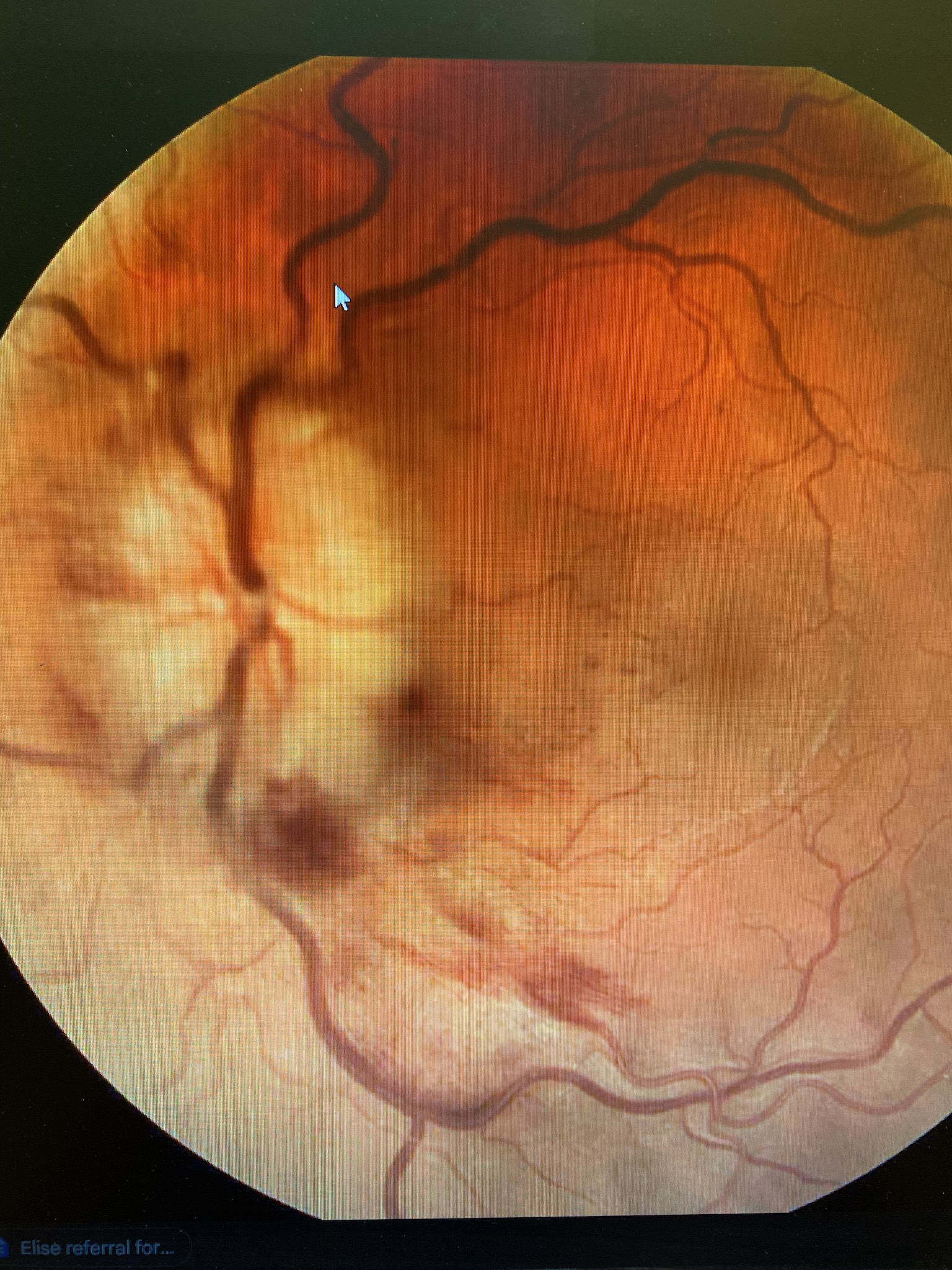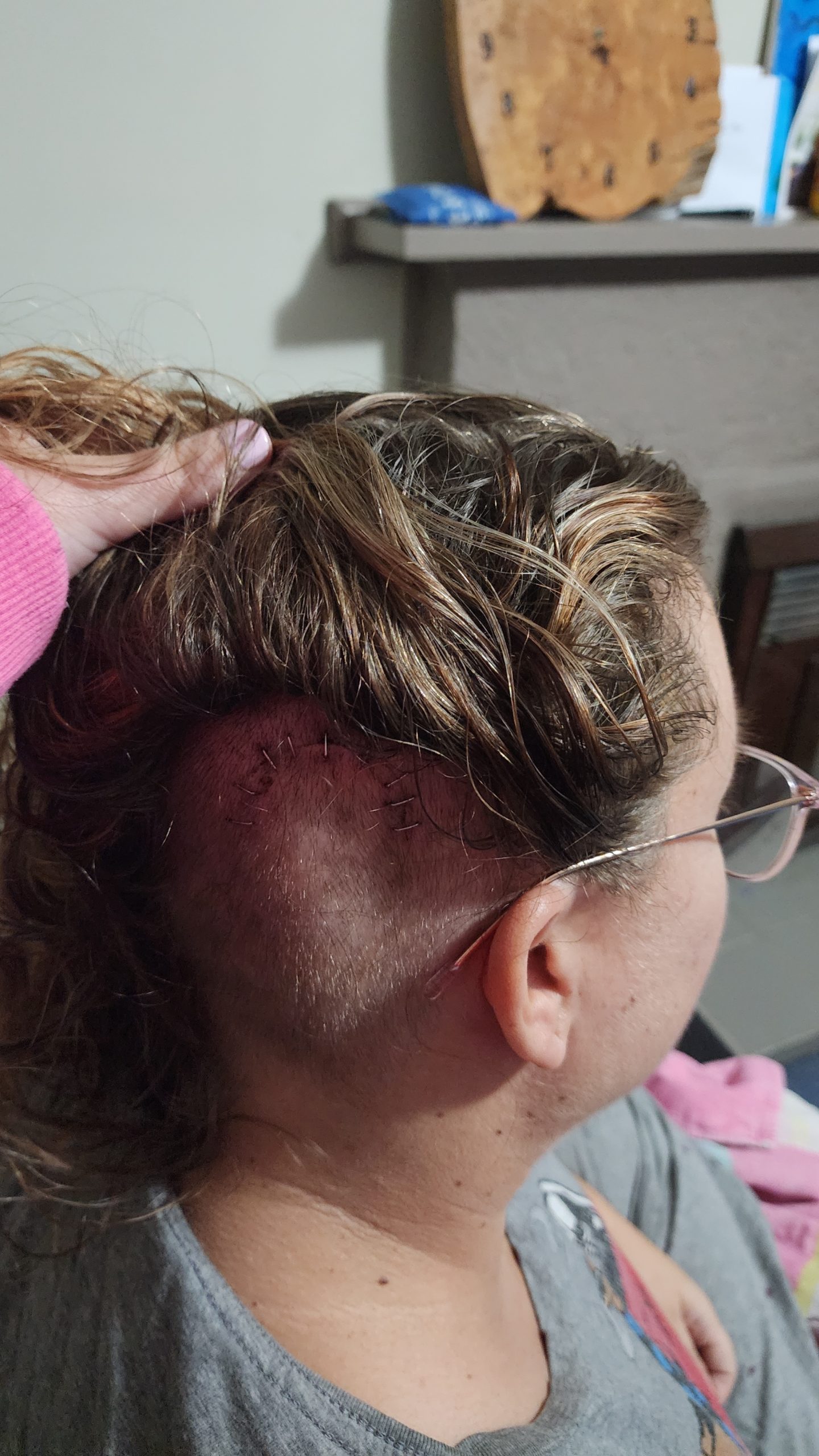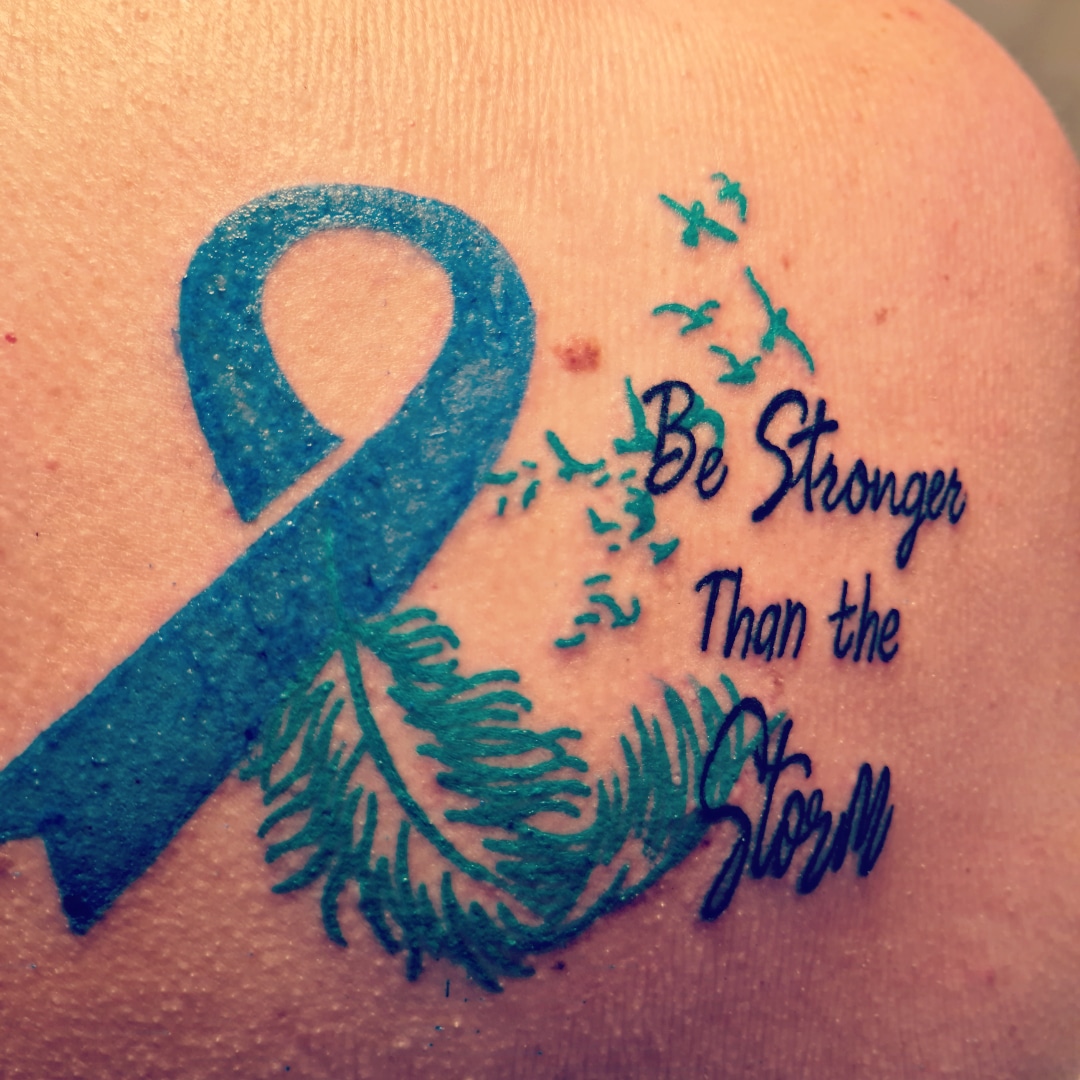15 Apr Idiopathic Intracranial Hypertension – Hayley’s Story
Idiopathic intracranial hypertension (IIH) is a disorder caused by increased pressure inside the skull, causing symptoms such as headaches and vision changes. This happens when there is a build-up of cerebrospinal fluid (CSF), which puts pressure on the optic nerve. However, the underlying cause of IIH is not known (this is what ‘idiopathic’ means).
Hayley Witcombe-Keep has been living with IIH for about six years now, and she spoke to us about the way this disorder has impacted her life. Since her diagnosis she has found that there is very little awareness about IIH, and she is committed to changing this by speaking out about her experience.
Brain Foundation: Can you please tell us a bit about yourself, and how you came to be diagnosed with Idiopathic Intracranial Hypertension (IIH)?
Hayley Witcombe-Keep: I’m a 33-year-old mum of two beautiful children, Toby (first year of high school) and Nina (year 4). I’ve been with my partner Nathan for 15 and a half years now – we’re engaged, a very long engagement!
I was first diagnosed with IIH in 2018. I went for my normal routine optometrist appointment, which I go to yearly. I felt fine beforehand. I thought maybe I needed a new prescription as I had been having regular headaches, but nothing too concerning.

We did all the usual testing that you do. Once I got to see the optometrist, she looked concerned and worried, which is when I started to freak out a little bit. She asked if I’d ever done a visual fields test before, and asked if I have had any other issues other than headaches. I wasn’t sure then what was going on, she herself wasn’t either. She suggested that I go see a specialist who then suggested I have a CT scan done and a MRI. They didn’t know whether I had a brain tumour or not, due to how my optical nerves were looking.
After all the scans had come back clear of a tumour, I was still nervous as I still had no idea what was going on. I was then referred to a neurologist who suggested my first ever lumbar puncture! I can’t really remember the exact reading, but my cerebrospinal fluid (CSF) pressure was in the high 20s. This is how they came to the conclusion that I had IIH.
BF: How has this condition affected your life?
HWK: Some days I struggle just to get up and function, the fatigue I get is unreal. The headaches/migraines are debilitating – I don’t want to go anywhere or see anyone, and I struggle to drive when they are extreme. Sometimes when I have flare ups they can last for weeks, which can really get to me mentally, and I think:
Why me? Why can't my head just feel normal for once? Why can't I get my words out that I want to say? Why can't I remember conversations I’ve had? It really does take a toll on you emotionally.
I’m generally a sociable person, but some days, I honestly just can’t deal with being around anyone, and I hate it. If there’s too much noise going on around me some days, I just can’t concentrate at all, or I blow up.
BF: What has helped you in coping with these impacts?
HWK: My family, my close friends, my GP and my neuro-opthamologist have been so supportive throughout it all. Without them, I wouldn’t be able to get through any of it.
I have found now, speaking about my experiences and raising awareness is helping me deal with it all as well. It’s so out of my control and that’s not something I’m used to. So, sharing my story, my experience with others is my way of coping.
Hayley has created an Instagram account to raise awareness about IIH and to share her journey with this chronic illness. Visit her account here >
BF: I understand that last year you experienced complications that led to emergency brain surgery. Could you please talk about this experience and the recovery process?
HWK: My story starts with having a scheduled hysterectomy at the start of April 2023. The surgery was a disaster at the beginning. I lost 4L of blood and the surgery went for way longer than it should have. I was in hospital for 5 days rather than 1. I was home for a week, I didn’t feel like I was getting any better, feeling lightheaded, dizzy, colour splotches in my vision. My best friend, who is a nurse, was worried about my blood pressure and urged me to go to the Emergency Department. I went into the ED and told them about the surgery, about my IIH, and the symptoms I’ve been having. They pretty much told me I was dehydrated, gave me fluids and sent me home.
The next morning I woke up, and something wasn’t right. My right eye, I couldn’t see out of it properly. I made an optometrist appointment, woke Nathan up, and we all headed into town for my appointment. I told her what had been going on. We didn’t even get past the first test where they look at your optic nerves. They were so enlarged. She told me they were the worst she has ever seen in the 7 years she has been practising. I had bleeds in both eyes. She rang the ED and told them I was coming over, told them to have a neurosurgeon ready for me. I was so distraught, I couldn’t believe what was happening.


It took awhile to get up to the ward, but as soon as they got me up there they did a lumbar puncture and the fluid went everywhere – the pressure reading was high at 40! My symptoms of migraines and vision didn’t improve after that, which they were hoping it would. I was getting worse, and my right eye was legally classified as blind. Two days later they sent me into emergency surgery to have a ventriculoperitoneal (VP) shunt placed to help drain the CSF fluid from my brain, to save my remaining sight.
I’ve lost nearly all my peripheral vision in my right eye and a small amount in my left. I was told that I would eventually lose all my eyesight at some point, but they can’t tell me when.
At the moment, my central vision is fine, and my eyes are stable, however, due to the extreme damage to my eyes it’s hard for them to tell if any new damage has occurred or not.
My IIH symptoms have been worse ever since, and it’s a trial and error with medications to help with my migraines. I’ve just started Botox injections, so I’m hoping that this will help.
BF: What do you wish people knew about IIH?
HWK: It’s a chronic illness, most of us don’t know how we get it or why, doctors don’t even know why. We are trying our best to live a normal life with little information that we have. Be kind and understanding of those that have it. We don’t know how we are going to be until we wake up that morning, frustrating I know, it is for us as well, there is no cure, only remission.
And please! Make sure you see an optometrist yearly!

Further information & resources
Thank you Hayley for sharing your story and helping to raise awareness for the impacts of IIH.
Here are some other links and resources related to Hayley’s story:
- Donate to brain research
- @stronger_then_the_storm – Hayley’s Instagram account
- Idiopathic intracranial hypertension – overview article
- Other patient stories
- Share your story – fill out this form if you are interested in sharing your story



 The Brain Foundation is the largest, independent funder of brain and spinal injury research in Australia. We believe research is the pathway to recovery.
The Brain Foundation is the largest, independent funder of brain and spinal injury research in Australia. We believe research is the pathway to recovery.